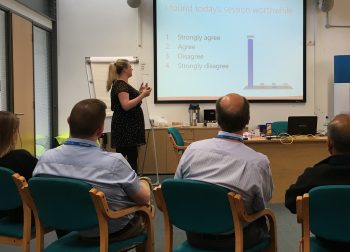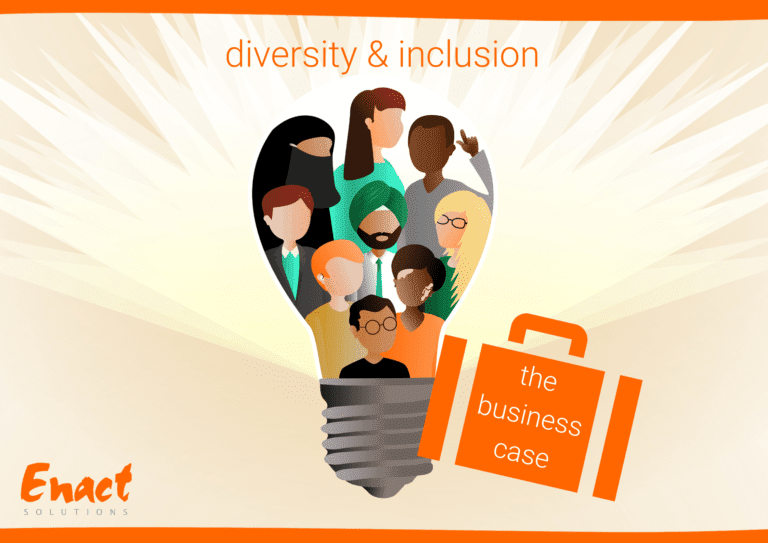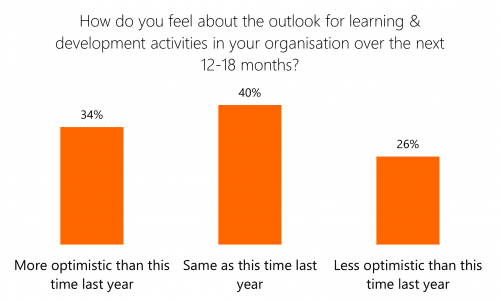
It ain’t what you do (It’s the way that you do it)
At Enact, we employ techniques and principles from the world of drama to help people in organisations learn more effectively. Lots of what we teach (we’ll use that word as shorthand for what we’re about) is readily available in books and online, and yes, from other consultants and training providers, but it’s the way we deliver it that gets results.
“The way the whole course was delivered really affects you and makes you think about things differently.”
“I enjoyed the format of the training and found I took in more info than usual training.”
“After six months, people still remember the training and have noticed a significant increase in awareness of the issues raised and changes in behaviour.”
Delegate Feedback
What’s going on?
Put simply, we show people something, that causes them to feel something, that fuels change. Using realistic and relevant dramatised scenes, alongside experiential exercises, we put feelings back at the heart of the learning experience. Which makes it much more likely the lessons will stick and turn into action back in the workplace.
The brain science behind this centres on a cocktail of three organic chemicals – Dopamine (which plays a role in reward motivated behaviour), Noradrenaline (which increases arousal and alertness, focuses attention, and enhances formation and retrieval of memory) and Acetylcholine (which is also implicated in learning and memory). Our drama-based approach gives the learner the kinds of experience that will stimulate these physiological responses, making it more likely the learning will make a real difference.
Leadership training, especially developing inclusive leadership capabilities, is one area where our approach comes into its own.
I’ll be your mirror
People have such strong, common sense notions about what it means to be a proper leader that it can be difficult for them to envisage alternative approaches. Throughout the many years we have been working with leaders, we’ve found that using drama to hold up a mirror to their behaviours really helps them to recognise their own style, understand its impact, and identify ways they can change for the better.
By way of example, explain to leaders how they should aim to listen more and talk less when dealing with team members, and these days it’s unlikely many will disagree. Most will probably tell you it’s their preferred approach. Alternatively, present them with an under-pressure fictional leader (played by one of our professional actors), who’s in a hurry to get to their next meeting and as a result quickly working through a standardised ‘team huddle’ agenda with their team members, then they’ll start to reflect about their own behaviour.
Who’s asking nearly all the questions, deciding what’s a problem, and coming up with most solutions? What’s it doing to the engagement of the team? What’s the energy in the room like? What do you think the long-term outlook for this group is likely to be? We can even hear from different team member’s, like Jenny, who never bothers to make suggestions for improvements any more because ‘no one’ listens, or Amiya who is resistant to changes to ways of working because she’s not received the training everyone else has. Makes you think. Makes you feel, too, which is powerful.
We never tell anyone, ‘This is about you.’ Usually, we say, ‘It’s fictional and exaggerated to draw out the learning,’ only to be told, ‘No, that’s exactly what it’s like here.’ From there it’s a short step to exploring alternatives, trying them out through our fictional characters, and seeing what happens as a result. It’s powerful, active experimentation that provides lessons leaders can apply back in the workplace.
“It provokes you to think about the issues in a way that just seeing a written format or e-learning could not. If you see real people, it is easier to empathise and consider what is happening to them.”
“Raised awareness and prompted future action.”
Delegate Feedback
The world keeps turning and someone’s learning
In case you haven’t guessed, we’re proud of how well our approach works. Results from recent Inclusive Leadership programmes show that delegates:
- Have a clearer appreciation of what’s expected of leaders (96%);
- Understand more about how inclusive practices support business success (95%); and
- Have fully explored the challenges facing leaders like themselves creating an inclusive workplace (92%).
No surprise then that most delegates say they found their time with us worthwhile (96%).
Changes
Of course, nothing stays the same and our inclusive leadership material continues to evolve. We’re currently weaving in elements of Compassionate Leadership for a session we’re delighted to be running for the HPMA on 29 November 2017 as part of their ‘Compassionate leadership, compassionate care‘ event at The Queens Hotel, Leeds. We’re looking forward to it. If you’re planning to attend, be sure to check out the session. Do come and have a chat, too, if you’d like to find out more about our work in this and other areas.



